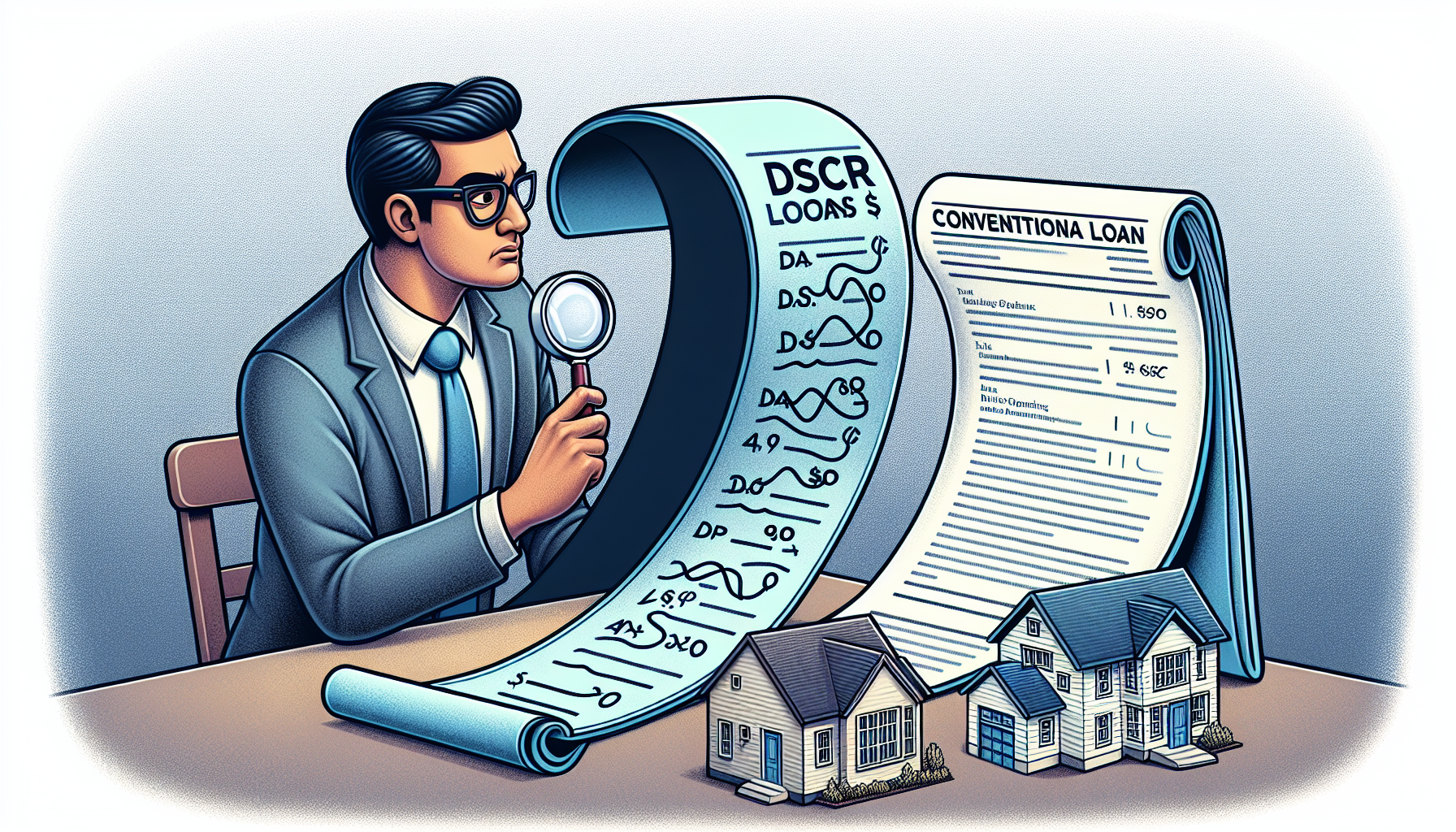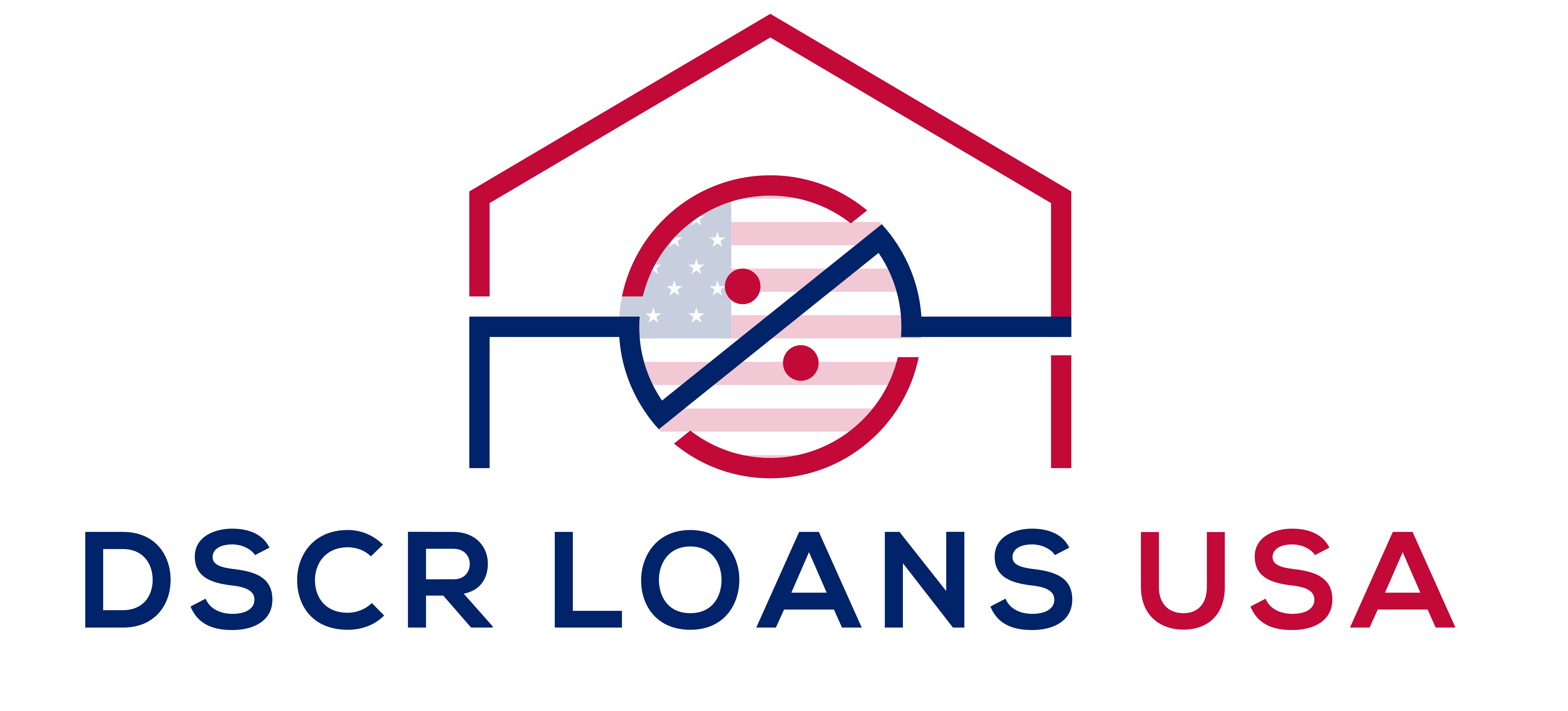Securing a DSCR loan in Georgia means leveraging rental income to grow your portfolio.
This step-by-step guide on how to get a dscr loan in Georgia equips property investors with the essentials for procuring a DSCR loan, focusing on the investment’s potential rather than your finances.
We’ll walk you through eligibility, application, and your strategic advantage, providing the know-how you need to progress in Georgia’s booming rental scene.
Key Takeaways
- DSCR loans in Georgia allow property investors to obtain financing based on rental income potential, with advantages like flexible loan terms and faster approvals, rather than personal income or assets.
- Investors must meet specific eligibility criteria for Georgia DSCR loans, including a minimum credit score, at least a 20% down payment, and a comprehensive rental income and cash flow analysis of the property.
- Georgia DSCR loans offer the option for cash-out refinancing, giving investors the ability to access equity from their rental properties for further investment, repairs, or debt consolidation.
Understanding DSCR Loans in Georgia

Imagine having the power to grow your property portfolio based on rental income, without the need to rely heavily on personal income or assets. Welcome to the world of DSCR loans! A DSCR loan is a game-changer for real estate investors, offering a unique set of benefits tailored to their needs. In Georgia, these loans have proven to be instrumental in helping investors tap into the potential of the rental property market.
The rates for DSCR loans are largely determined by factors such as:
- Loan terms
- Borrower qualifications
- Loan-to-value ratio (LTV)
- Specifics of the property involved
This makes the DSCR loan a flexible and customizable financial solution for every investor’s unique needs.
Debt Service Coverage Ratio (DSCR) Defined
The Debt Service Coverage Ratio (DSCR) is a financial indicator used to measure the cash flow of a rental property and ensure it can cover its debt obligations. The DSCR is calculated by dividing the property’s annual rental income by its annual debt obligations, which include principal and interest payments, property taxes, and insurance.
This ratio is based on the economic characteristics of the rental property and its capacity to generate cash flow to service the debt.
Benefits of DSCR Loans for Real Estate Investors
DSCR loans typically provide some unique benefits for real estate investors, including:
- Flexible loan terms, like full 30-year terms without balloon payments
- Options for interest rates and prepayment penalties to suit different investment strategies
- A streamlined and efficient application process, often resulting in quicker approvals for investors.
The focus of these loans is on the income-generating potential of the investment, instead of the personal income of the investor, making them an attractive choice for growing rental property portfolios.
Georgia Rental Property Market Overview

Georgia’s rental market is a magnet for investors, characterized by a growing economy, increased rental rates, and a sizable share of renter-occupied units. Cities like Atlanta, Athens, and Augusta offer robust job markets and diverse investment opportunities. For instance, Atlanta benefits from tourist traffic and a strong job market, potentially increasing annual rental income by 10%.
Athens presents a viable market for rental property investments, especially in student housing. Augusta offers viable opportunities for short-term rentals related to major events like the Masters Tournament, while Tybee Island stands out for its affordability and promising return on investment for short-term rentals.
Eligibility Criteria for Georgia DSCR Loans
Qualifying for a DSCR loan in Georgia calls for meeting certain eligibility criteria. These include a minimum credit score, a down payment, and a comprehensive analysis of rental income and cash flow.
Let’s delve into these requirements to better understand what it takes to secure a DSCR loan in this state.
Minimum Credit Score
Securing a DSCR loan in Georgia typically requires the borrower to have a certain minimum credit score. This score serves as a key consideration for lenders, as it is a reflection of your financial behavior and creditworthiness.
Having a good credit score can open the door to more favorable loan terms and conditions.
Down Payment Requirements
To secure a DSCR loan in Georgia, investors must provide down payments of at least 20%. This down payment is often higher than some conventional mortgage options, representing a more substantial equity position in the property required by DSCR lenders. In certain circumstances, borrowers may qualify for a no-ratio DSCR loan, which can demand a higher down payment than the standard requirement. However, the actual loan-to-value (LTV) ratio and, consequently, the down payment percentage may vary by lender, affecting the equity needed in the rental property.
Rental Income and Cash Flow Analysis

In the realm of DSCR loans, rental income and cash flow hold the keys to the kingdom. Lenders examine the cash flow from investment properties to evaluate a borrower’s ability to make monthly loan payments. Unlike traditional loans, DSCR loans are underwritten based on the rental property’s cash flow, thereby focusing on the income-generating potential of the investment instead of the personal income of the investor.
This approach facilitates the process of filing tax returns for investors with many deductions that may lower their taxable income.
Calculating DSCR for Your Georgia Rental Property
Understanding how to calculate DSCR for your Georgia rental property is pivotal to your success as an investor. The DSCR is calculated by dividing the property’s annual rental income by its annual debt obligations, such as:
- mortgage payments
- property taxes
- insurance premiums
- HOA fees if applicable.
Let’s break it down further to get a clearer understanding of the components involved in this calculation.
DSCR Formula
The DSCR formula is expressed as the annual net operating income divided by the annual debt service. In this context, net operating income is the rental income minus operating expenses. The DSCR is calculated by dividing monthly rental income by monthly expenses, including:
- principal
- interest
- taxes
- insurance
- homeowners association fees if applicable (known as PITIA)
In short, lenders calculate the DSCR by comparing the property’s annual gross rental income to the annual mortgage debt obligations, which include taxes and insurance.
Acceptable DSCR Ratios for Lenders
When it comes to DSCR, lenders in Georgia generally look for a minimum ratio of 1.25 to view a rental property’s income as sufficient. However, some lenders may approve loans with a DSCR as low as 0.75.
A DSCR threshold over 1.3 is generally accepted for maintaining a healthy investment margin, signaling a stronger return and lesser risk.
Tips for Improving Your DSCR
Improving your DSCR can be achieved by:
- Adjusting rent rates to align with market trends
- Ensuring the attraction and retention of high-quality tenants
- Considering pursuing additional revenue streams
- Reducing operating expenses through regular property maintenance
- Investing in energy-efficient upgrades
- Negotiating service provider contracts
These strategies can contribute to an enhanced DSCR.
Optimizing Net Operating Income (NOI) is essential to improving DSCR and can be achieved with effective property management strategies and consistent financial analysis and expense tracking.
Comparing DSCR Loans with Conventional Loans
DSCR loans and conventional loans are two different animals in the lending jungle. They differ in:
- their qualification process
- interest rates
- loan terms
- flexibility in financing multiple properties
Let’s explore these differences to understand why DSCR loans are a preferred choice for many real estate investors in Georgia.
Loan Qualification Process
The loan qualification process for DSCR loans is quite different from that of conventional loans. DSCR loans have qualification criteria that focus on the rental property’s ability to generate income rather than the personal income and creditworthiness of the investor. Unlike conventional loans, DSCR loans do not typically require traditional income verification such as W-2s or job history.
This focus on the property’s income potential makes the approval process advantageous for self-employed investors or those with numerous properties.
Interest Rates and Loan Terms
DSCR loans offer the following features:
- Full 30-year terms with no balloon payments
- Various options such as interest-only loans and different rate structures, catering to different investment strategies
- Many DSCR loans in Georgia are fixed-rate for the duration of 30 years, contrasting with conventional loans that may include adjustable-rate mortgages.
Fixed-rate DSCR loans offer financial stability for property investors, ensuring a consistent debt cost while rental income and property value have the potential to increase.
Flexibility in Financing Multiple Properties

DSCR loans offer a unique advantage when it comes to financing multiple properties. In Georgia, these loans allow investors to obtain loan amounts up to $5,000,000, facilitating the financing of multiple rental properties. This is a stark contrast to conventional lenders who typically cap the number of mortgaged properties at ten.
Application Process for Georgia DSCR Loans
The journey to securing a DSCR loan in Georgia starts with the application process, which involves preparing required documents, choosing a reputable lender, and submitting the application for approval.
Let’s navigate this process step by step.
Preparing Required Documents
Before you can set sail on your DSCR loan journey, you need to gather the necessary financial documents. These documents are primarily associated with the rental property in question and may include lease agreements and a rent schedule appraisement. In some cases, lenders may ask for additional documentation throughout the process.
Choosing a Reputable DSCR Lender
Choosing a reputable DSCR lender in Georgia is a crucial step in the loan application process. When selecting a DSCR lender, real estate investors should look for specific qualities such as the lender’s ability to consider DSCR values as low as 0.75, offering competitive interest rates, and not limiting the number of financed properties.
Georgia is home to several lenders that specialize in offering DSCR loans, highlighting the availability of lenders that cater to the needs of Georgia real estate investors in the region.
Submitting Your Application and Awaiting Approval
Once you’ve gathered your documents and selected a reputable lender, the next step is to submit your DSCR loan application and await approval. This process may include a property appraisal and verification of documents. It’s important to remember that DSCR loans have certain financial implications that differ from conventional loans. These loans may come with higher interest rates, additional fees, and elevated closing costs.
However, Georgia DSCR loan programs provide an option for a single monthly payment, which simplifies financial management for investors, especially those with multiple rental properties.
Cash-Out Refinance Options for Georgia DSCR Loans
Investors with DSCR loans in Georgia can utilize cash-out refinancing to access the equity of their rental properties, facilitating financial flexibility for various needs. Let’s delve into the advantages of cash-out refinancing, the loan-to-value (LTV) requirements, and how it impacts DSCR and property cash flow.
Advantages of Cash-Out Refinancing
Cash-out refinancing offers a bouquet of benefits for investors. It provides an opportunity to secure additional funds for further investments. The equity available for cash-out refinancing can increase as homeowners make regular mortgage payments and if the property value appreciates.
The funds from cash-out refinancing can be used for various purposes such as making property repairs or paying off other debts.
Loan-to-Value (LTV) Requirements
For cash-out refinancing in Georgia, property investors must typically maintain a minimum of 20% equity in their property. To become eligible for a cash-out refinance option, Georgia homeowners should prioritize building enough equity in their property.
To pursue a cash-out refinance of their DSCR loans, investors in Georgia need to adhere to the lender-specific minimum LTV requirements.
Impact on DSCR and Property Cash Flow
Cash-out refinancing can affect the Debt Service Coverage Ratio (DSCR) for property investors by influencing the rental income required to meet new debt obligations. The process of cash-out refinancing changes the property’s debt obligations, requiring adjustments in the amount of rental income needed to cover new loan payments.
These changes in debt obligations and rental income requirements ultimately impact the cash flow of the property, which is a crucial factor for the sustainability of the investment.
Building Your Georgia Rental Portfolio with DSCR Loans

Building a rental portfolio in Georgia with DSCR loans involves leveraging loans for property acquisition, managing multiple properties, and focusing on long-term growth and wealth creation.
Let’s explore these aspects one by one.
Leveraging DSCR Loans for Property Acquisition
DSCR loans allow investors to finance multiple properties based on rental income potential, facilitating property acquisition. In Georgia, these loans allow investors to obtain loan amounts up to $5,000,000, facilitating the financing of multiple rental properties. This is a stark contrast to conventional lenders who typically cap the number of mortgaged properties at ten.
Managing Multiple Rental Properties
Running a successful rental portfolio involves implementing standardized processes for daily operations, utilizing property management software, and understanding legal responsibilities. Investors who successfully manage multiple rental properties usually establish standardized processes to streamline tenant selection, rent collection, and maintenance protocols. Property management software can help organize and automate many aspects of managing multiple properties, from tracking expenses to communicating with tenants. To expand their rental portfolio, investors may consider the option to purchase rental properties that align with their investment strategy.
Finally, managing multiple properties also involves adhering to various state and local laws, necessitating a clear understanding of legal responsibilities.
Long-Term Growth and Wealth Creation
Long-term success in the real estate investment realm requires strategic planning and a clear understanding of economic trends. Investors with a long-horizon strategy can opt for fixed-rate DSCR loans to ensure stability in repayments, albeit with higher fees, whereas those looking to exit in the shorter term may lean towards adjustable-rate options with lower prepayment penalties.
Georgia DSCR loans provide a viable avenue for long-term investors to leverage the value of their properties to foster growth without the need for extensive collateral, thus facilitating wealth creation through strategic investment.
Summary
In summary, DSCR loans offer a unique opportunity for real estate investors in Georgia to grow their property portfolio based on rental income. These loans prioritize the income generated by the rental property over the personal income of the borrower to assess loan eligibility. This approach allows investors to navigate around the traditional income verification methods and provides an alternative way to qualify for a loan based on the property’s cash flow. With the right understanding and strategic approach, DSCR loans can facilitate the growth of your rental property portfolio, leading to long-term financial success in Georgia’s vibrant real estate market.
Frequently Asked Questions
What is a DSCR loan?
A DSCR loan prioritizes the rental income from a property over the borrower’s personal income to determine eligibility, making it a great option for real estate investors seeking to expand their property portfolio.
What is the minimum DSCR required by lenders in Georgia?
In Georgia, most lenders typically seek a minimum Debt Service Coverage Ratio (DSCR) of 1.25, but some may approve loans with a DSCR as low as 0.75.
What are the benefits of a DSCR loan for real estate investors?
DSCR loans offer flexible terms, a streamlined application process, and focus on rental property income, making them an attractive choice for real estate investors. If you want to finance multiple properties at once, this is a good option.
How is the DSCR calculated?
The DSCR is calculated by dividing the property’s annual rental income by its annual debt obligations, such as mortgage payments, property taxes, insurance premiums, and HOA fees if applicable. This provides a clear measure of the property’s ability to cover its debt expenses.
How does a DSCR loan differ from a conventional loan?
A DSCR loan differs from a conventional loan in its qualification process, interest rates, loan terms, and flexibility in financing multiple properties. The qualification process for a DSCR loan focuses on the rental property’s income-generating ability rather than the investor’s personal income and creditworthiness.
Ready for More Great Tips and Information? Join Our Email List Today!


Leave a Reply